
Niamey: The Heartbeat of Niger
Niamey, the bustling capital of Niger, offers a unique blend of traditional African culture and modern city life. Situated along the majestic Niger River, Niamey is a city where history and contemporary life coexist. The riverbanks are lined with vibrant markets, where you can find everything from local crafts to fresh produce. The city is rich in cultural heritage, with numerous museums and landmarks that tell the story of Niger's past and present. The National Museum of Niger is a must-see, housing a vast collection of artifacts that provide insights into the country's history. The Grand Mosque, with its impressive architecture, is another highlight that showcases the religious and cultural significance of the city. For those interested in wildlife, the nearby W National Park offers an opportunity to see some of Africa's most iconic animals in their natural habitat. Niamey is also a city of contrasts, where modern buildings stand alongside traditional mud-brick houses. The local cuisine is a delightful experience, offering a mix of flavors that reflect the diverse cultures of the region. From the bustling streets of the city center to the serene banks of the Niger River, Niamey provides a rich tapestry of experiences that will leave any traveler enchanted.
Local tips in Niamey
- Visit the National Museum of Niger to understand the country's rich cultural heritage.
- Take a stroll along the Niger River for a tranquil escape from the city's hustle and bustle.
- Try local dishes like Djerma rice and grilled meats at one of the city's many eateries.
- Plan a trip to W National Park for a chance to see elephants, lions, and other wildlife.
- Visit the Grand Mosque, especially during prayer times, to experience the religious fervor.
- Stay hydrated and use ample sun protection, as Niamey can get very hot and dry.
- Learn a few basic phrases in French, as it is widely spoken and will help you navigate the city more easily.
Neighbourhoods in Niamey
Niamey: The Heartbeat of Niger
Niamey, the bustling capital of Niger, offers a unique blend of traditional African culture and modern city life. Situated along the majestic Niger River, Niamey is a city where history and contemporary life coexist. The riverbanks are lined with vibrant markets, where you can find everything from local crafts to fresh produce. The city is rich in cultural heritage, with numerous museums and landmarks that tell the story of Niger's past and present. The National Museum of Niger is a must-see, housing a vast collection of artifacts that provide insights into the country's history. The Grand Mosque, with its impressive architecture, is another highlight that showcases the religious and cultural significance of the city. For those interested in wildlife, the nearby W National Park offers an opportunity to see some of Africa's most iconic animals in their natural habitat. Niamey is also a city of contrasts, where modern buildings stand alongside traditional mud-brick houses. The local cuisine is a delightful experience, offering a mix of flavors that reflect the diverse cultures of the region. From the bustling streets of the city center to the serene banks of the Niger River, Niamey provides a rich tapestry of experiences that will leave any traveler enchanted.
When is the best time to go to Niamey?
Iconic landmarks you can’t miss
Grand Market Niamey
Experience the vibrant heart of Niamey at Grand Market, where local culture meets commerce in a colorful bazaar of sights and flavors.
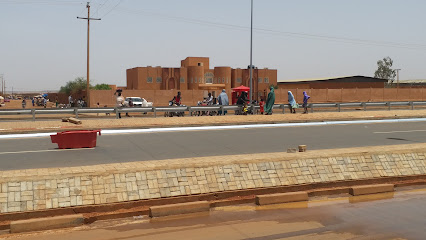
Diori Hamani International Airport (NIM)
Discover the vibrant spirit of Niger through Diori Hamani International Airport, the modern gateway to Niamey and beyond.
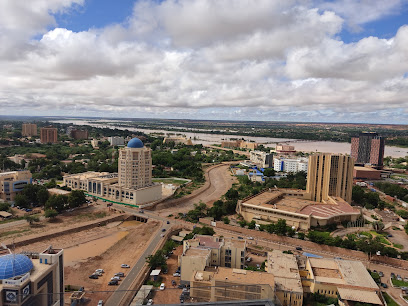
Bravia Hotel Niamey
Discover comfort and modern luxury at Bravia Hotel Niamey, your perfect retreat in the heart of Niger's vibrant capital.
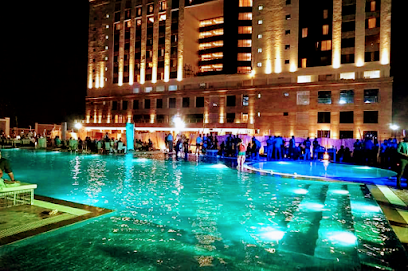
Great Mosque of Niamey
Explore the Great Mosque of Niamey, a stunning architectural gem and cultural hub in Niger's capital, showcasing the beauty of Islamic heritage.
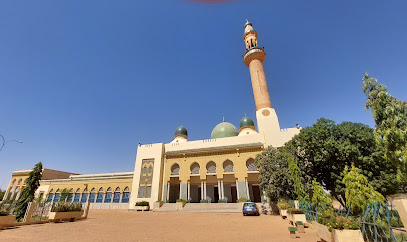
Grand Hôtel du Niger
Discover comfort and culture at the Grand Hôtel du Niger, where the beauty of Niamey meets exceptional hospitality in a tranquil riverside setting.

CanalOlympia Hippodrome
Discover the thrill of cinema at CanalOlympia Hippodrome, Niamey’s premier movie theater showcasing local and international films.
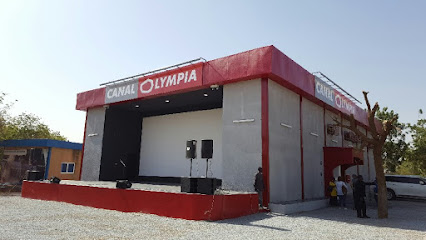
Mosquée Cité Caisse
Discover the architectural elegance and cultural significance of Mosquée Cité Caisse, a must-visit mosque and tourist attraction in Niamey, Niger.
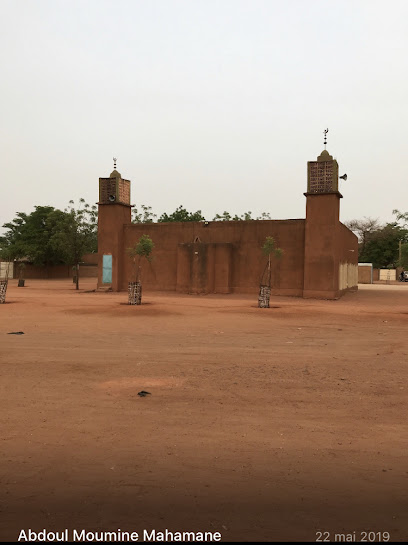
LEVEL CLUB & LOUNGE
Immerse yourself in the vibrant nightlife of Niamey at LEVEL CLUB & LOUNGE, where music and energy combine for an unforgettable experience.
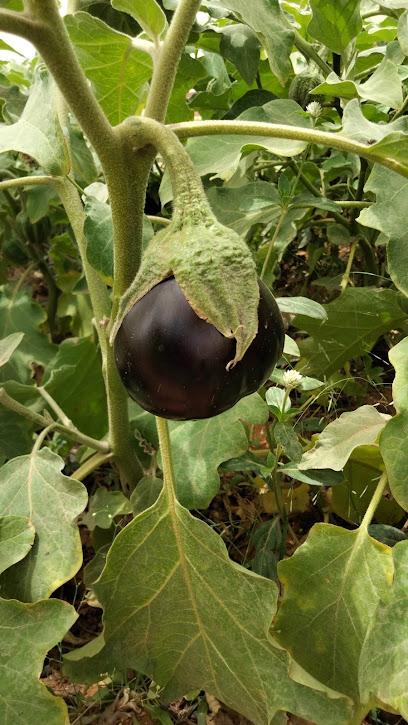
Our Lady of Perpertual Help Cathedral
Explore the architectural beauty and spiritual serenity of Our Lady of Perpetual Help Cathedral in Niamey, a must-visit destination for cultural immersion.
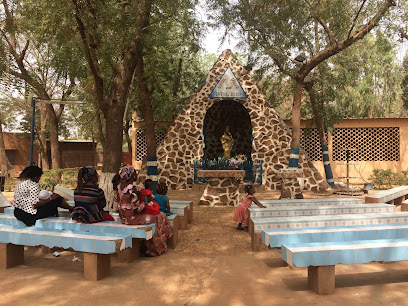
Natalia Niamey
Experience the perfect blend of comfort and culture at Natalia Niamey in Niger's vibrant capital, ideal for travelers seeking an unforgettable stay.
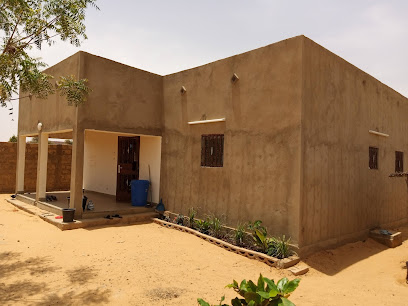
FERME YOUYOU
Experience the essence of Niger at Ferme Youyou, where farm tours, local cuisine, and relaxation come together in Niamey.
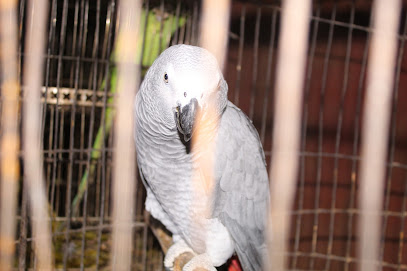
visiter le niger
Explore the vibrant culture, rich history, and stunning landscapes of Niger, a hidden gem in West Africa waiting to be discovered.
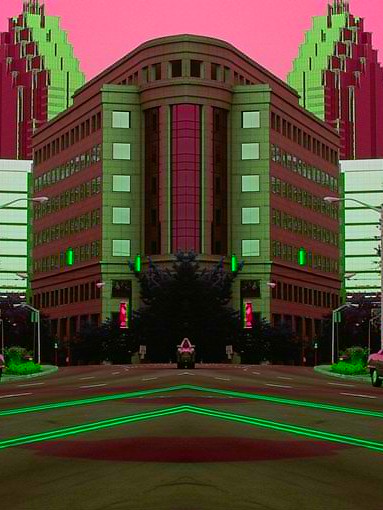
Niamey niger
Explore Niamey University, a vibrant center of education and culture in Niger's capital, where knowledge and tradition intersect.
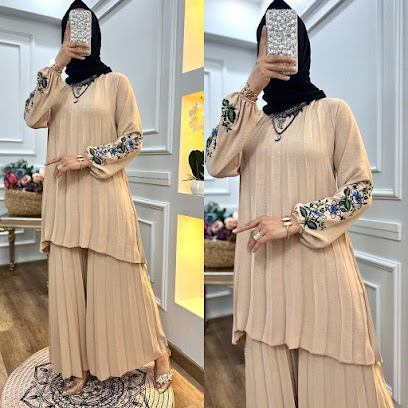
Niamey - niger
Experience authentic Egyptian cuisine in the vibrant city of Niamey, where every dish tells a story of tradition and flavor.

Niamey railway station
Experience local culture at Niamey Railway Station, the vibrant heart of Niger's capital, where travel and tradition meet.

Unmissable attractions to see
Great Mosque of Niamey
Explore the stunning Great Mosque of Niamey, an architectural wonder showcasing the rich heritage and culture of Niger's capital.
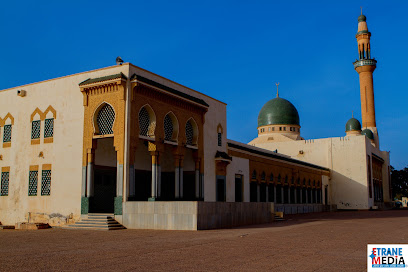
Boubou Hama National Museum
Explore the cultural tapestry of Niger at Boubou Hama National Museum in Niamey, where history and tradition come alive.
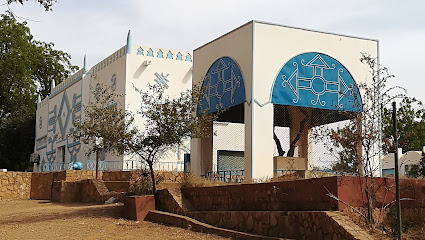
Kennedy's Bridge
Experience the architectural beauty and vibrant culture of Niamey at Kennedy's Bridge, a bridge that connects history with modernity along the banks of the Niger River.
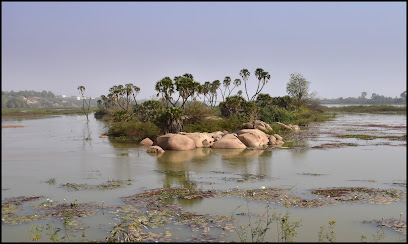
Mosquée Cité Caisse
Experience the architectural beauty and spiritual significance of Mosquée Cité Caisse, a must-see tourist attraction in Niamey, Niger.
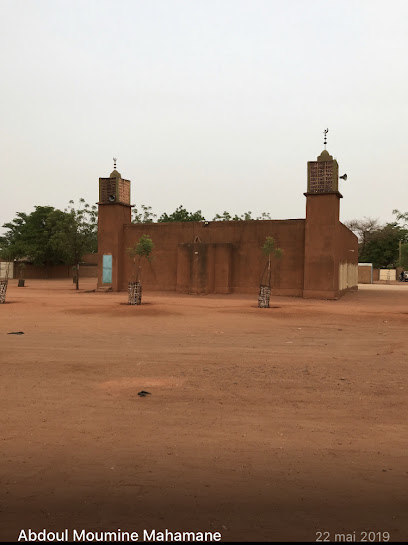
visiter le niger
Explore Niamey, Niger's vibrant capital, rich in culture, history, and culinary delights along the stunning Niger River.
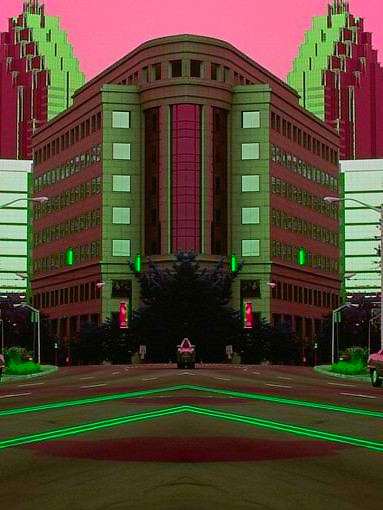
Place of Veterans
Explore the Place of Veterans in Niamey, a serene memorial park dedicated to honoring the bravery of those who served their nation.
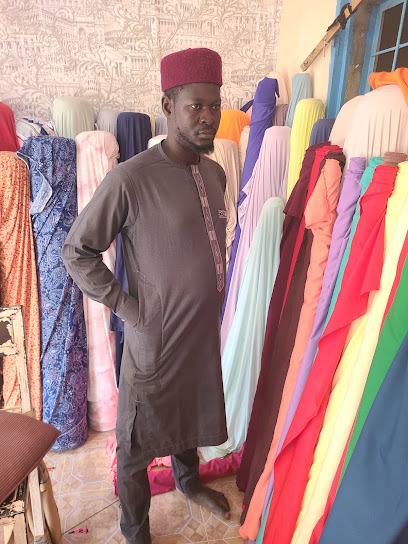
Amphithéâtre 500 places
Explore the Amphithéâtre in Niamey, a cultural landmark showcasing Niger's rich artistic heritage and vibrant community spirit.

Essential places to dine
Amandine
Discover authentic Nigerien cuisine at Amandine in Niamey - where tradition meets flavor in every dish.
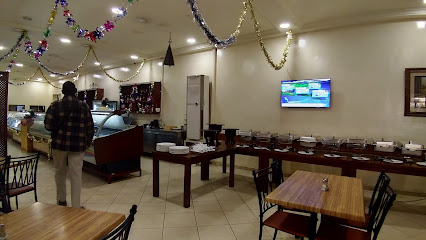
La Cabane
Experience authentic Nigerien cuisine at La Cabane in Niamey - where local flavors meet warm hospitality.
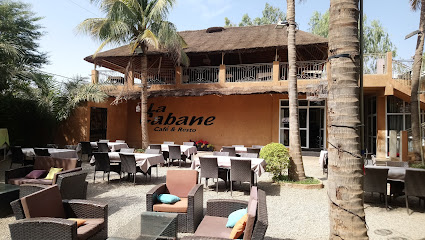
Côté Jardin
Experience the taste of Niger at Côté Jardin - an exquisite restaurant blending local flavors with international cuisine in a serene garden setting.
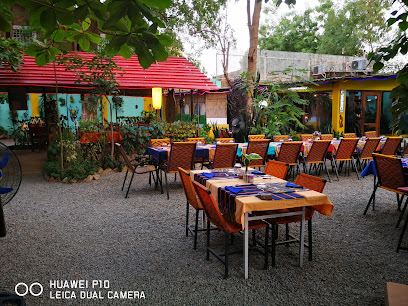
The Pillar Restaurant
Experience the essence of Italy at The Pillar Restaurant in Niamey - where authentic flavors meet warm hospitality.
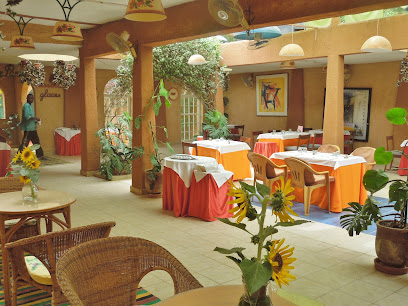
New York Restaurant and Bar
Discover the vibrant flavors of Nigerien cuisine blended with international delights at New York Restaurant and Bar in Niamey.
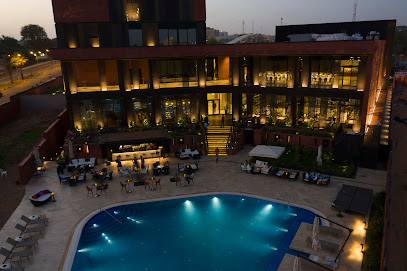
Cap Banga
Discover Cap Banga in Niamey: A vibrant restaurant offering a delightful blend of local flavors and international cuisine with stunning views.
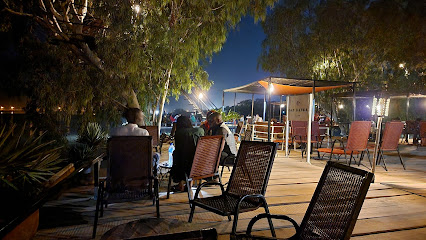
Restaurant Dragon D'or Niamey
Discover authentic Chinese flavors at Restaurant Dragon D'or in Niamey – where every dish tells a story.
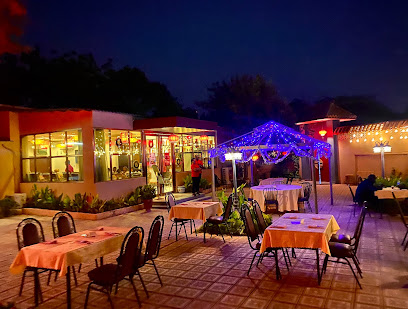
Maquis 2000
Discover authentic Nigerien cuisine at Maquis 2000 in Niamey—where local flavors meet warm hospitality.
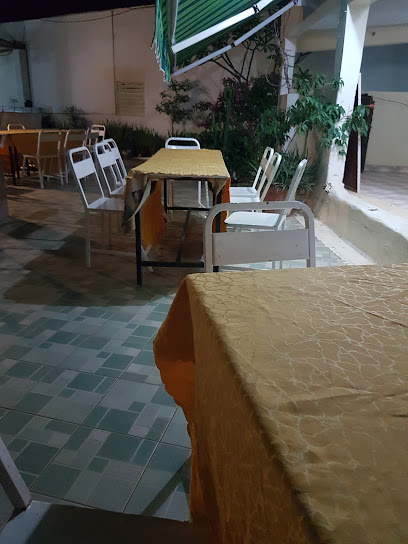
Belissimo
Savor authentic flavors at Belissimo, Niamey's beloved restaurant offering delightful local and international cuisine in an inviting atmosphere.
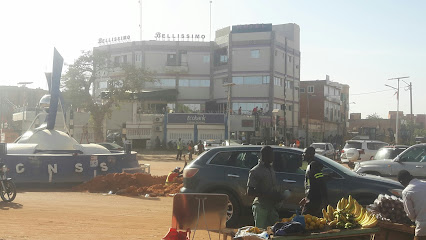
Aladdin's resto libanais
Experience authentic Lebanese cuisine at Aladdin's Resto Libanais in Niamey—where every dish tells a story.
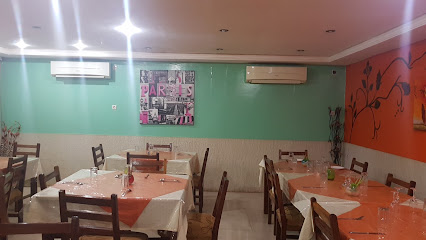
Restaurant 3 Epices
Discover authentic flavors and warm hospitality at Restaurant 3 Epices in Niamey - where every meal is a taste of Niger.
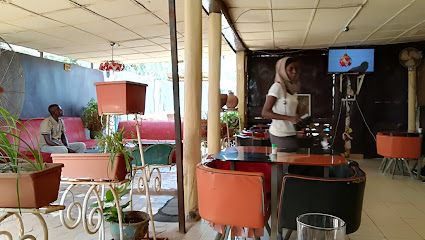
CNAV
Savor authentic African cuisine at CNAV in Niamey – where every dish tells a story and every bite is an adventure.
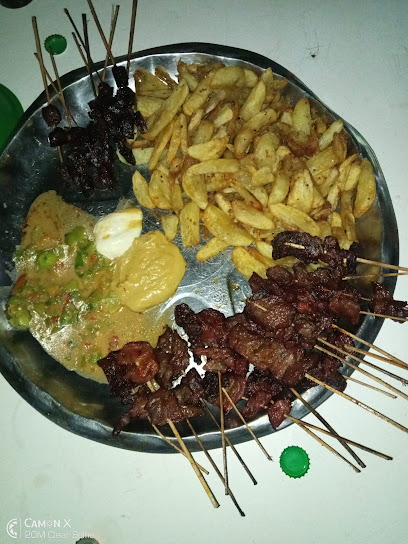
Zaxi Rooftop Lounge & Bar
Discover elegance at Zaxi Rooftop Lounge & Bar in Niamey - where exquisite dining meets breathtaking views.
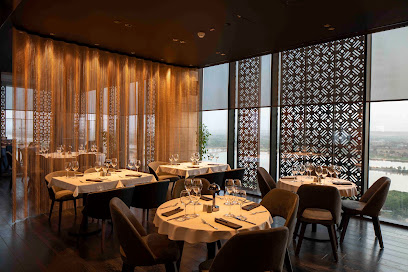
ALMINA Restaurant
Experience the rich flavors of Niger at ALMINA Restaurant in Niamey – where local meets global cuisine in an inviting atmosphere.
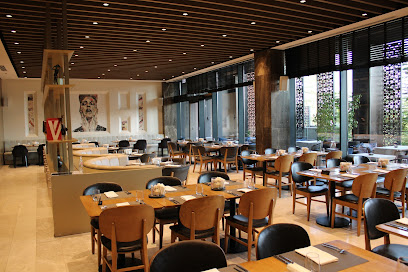
Restaurant Le Baobab
Discover authentic Nigerien cuisine at Restaurant Le Baobab – a vibrant dining experience in the heart of Niamey.
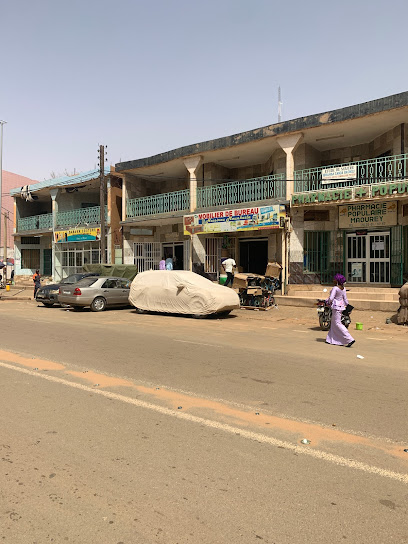
Markets, malls and hidden boutiques
Ets BABY SHOP
Discover quality baby clothing and accessories at Ets BABY SHOP in Niamey, a local favorite for stylish little ones.
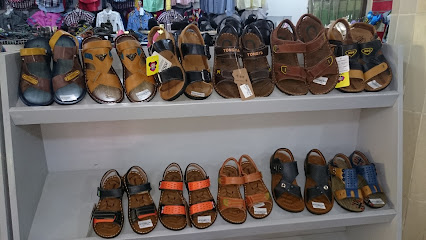
Ahlame Shop
Explore Ahlame Shop, a boutique treasure trove filled with handcrafted items and exceptional local artistry in an inviting atmosphere that delights every visitor.
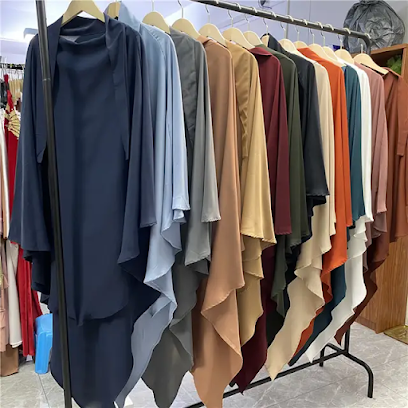
Número Uno
Explore the vibrant world of fashion at Número Uno, a clothing store in Niamey offering unique designs that reflect Niger's rich culture.
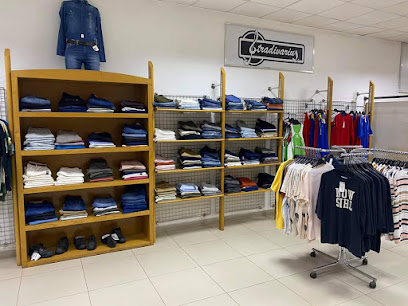
Eniprom, Agence principale Niamey
Explore Eniprom Boutique in Niamey for authentic crafts and unique souvenirs reflecting Niger's rich cultural heritage.
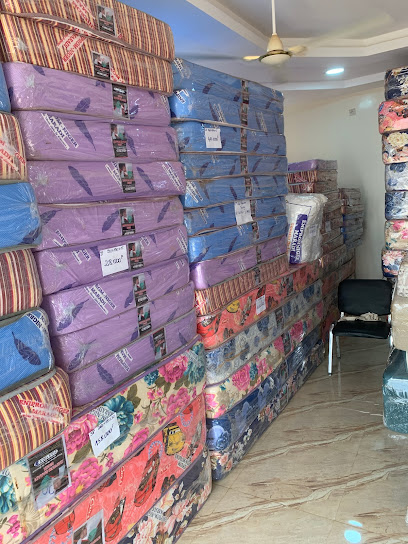
Nous les belles
Explore Nous les belles in Niamey, a shopping mall that captures the heart of Nigerien culture with unique products and delicious local cuisine.
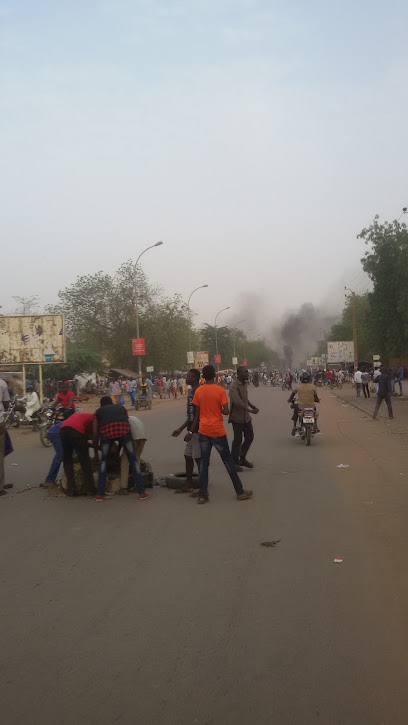
Broadway Shop
Discover unique gifts and local clothing at Broadway Shop in Niamey, a vibrant hub of Niger's artistry and culture.
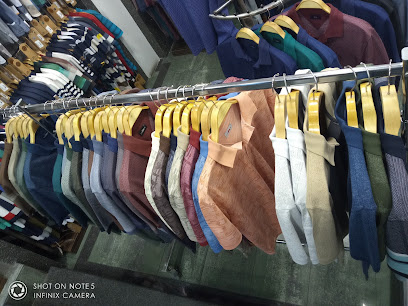
Boutique Authentic
Explore Boutique Authentic in Niamey for a unique blend of local and contemporary fashion that reflects the vibrant culture of Niger.
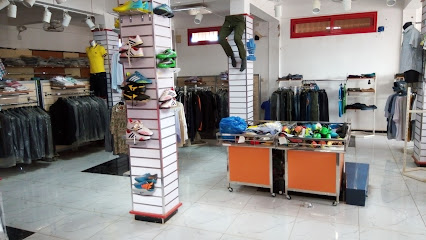
MODE & TENDANCE
Explore unique fashion accessories at MODE & TENDANCE in Niamey, where tradition meets modern elegance in every exquisite piece.
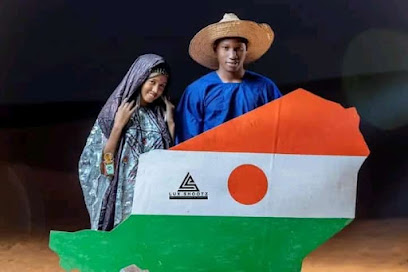
aisha shop and fashion
Explore Aisha Shop and Fashion in Niamey for an exceptional selection of electronics, gadgets, and accessories in a friendly atmosphere.
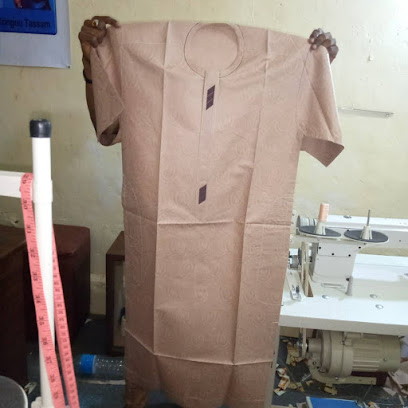
Séjour à Niamey Boutique 1
Explore the vibrant gift shop Séjour à Niamey Boutique 1 for unique local crafts and souvenirs that embody the spirit of Niger.
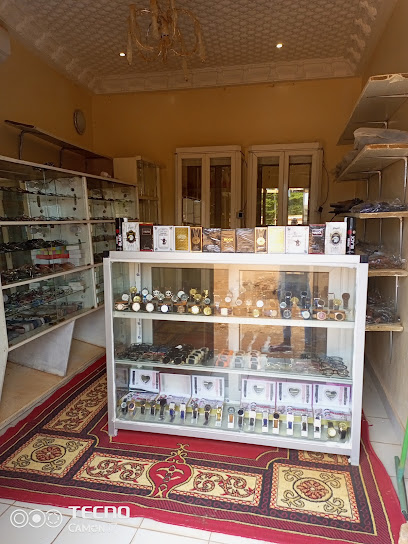
city shop Niamey
Explore unique fashion accessories and local craftsmanship at City Shop Niamey, a vibrant destination in Niger's capital for trendy finds.
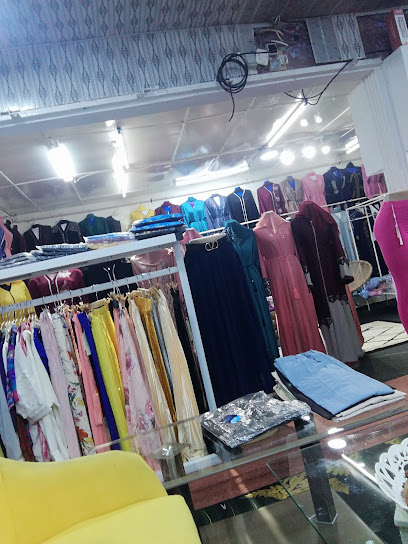
Woman's shop
Shop at Niamey's top women's clothing store for unique fashion pieces that reflect Niger's vibrant culture and style.
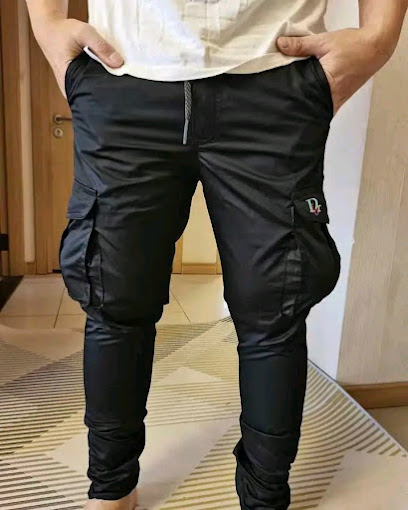
Otentik Shop
Explore the vibrant artistry of Otentik Shop in Niamey, where unique posters celebrate the culture and creativity of Niger.
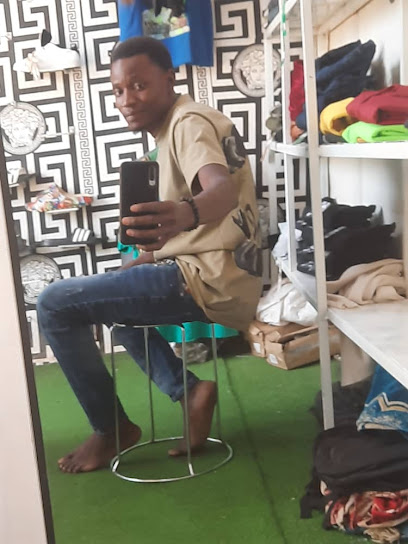
La finesse meuble en rotin et fer forgé
Explore exquisite handcrafted rattan and wrought iron furniture at La finesse meuble en rotin et fer forgé in Niamey, a true artisan's paradise.
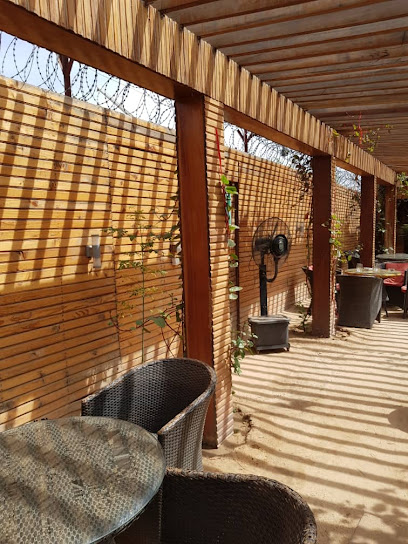
Aarif Stor
Explore Aarif Stor in Niamey for a unique shopping experience blending local culture with modern retail.

Essential bars & hidden hideouts
La Cabane
Experience the vibrant flavors of Niger at La Cabane, a restaurant in Niamey offering a delightful mix of local and international cuisine.
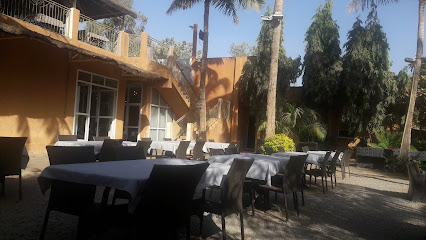
Côté Jardin
Experience the flavors of Niger at Côté Jardin, a charming restaurant in Niamey offering a delightful fusion of local and international cuisine.
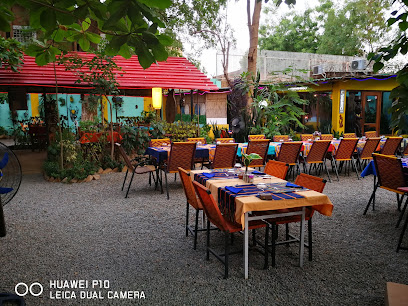
Le Patio Club
Experience the vibrant nightlife of Niamey at Le Patio Club, a lively bar offering a diverse drink menu and a welcoming atmosphere for all.
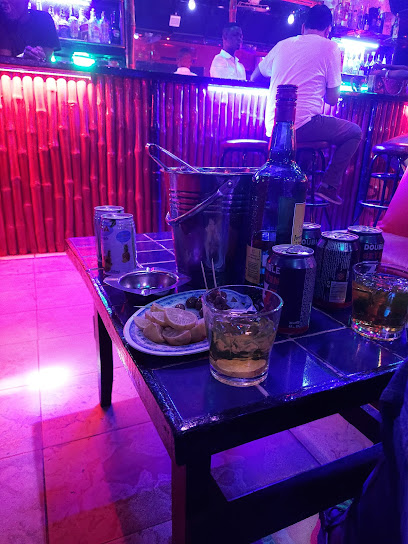
Cap Banga
Discover the vibrant atmosphere and culinary delights at Cap Banga, Niamey's go-to spot for relaxation and socializing.
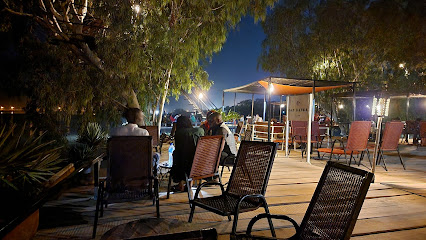
New York Restaurant and Bar
Discover a culinary haven at New York Restaurant and Bar, where local flavors meet international cuisine in a vibrant setting.
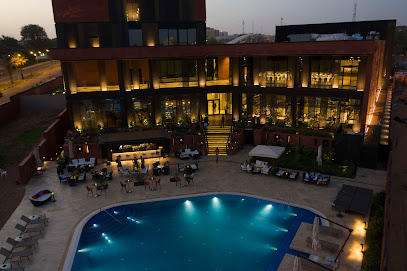
Sky Lounge
Experience the vibrant nightlife of Niamey at Sky Lounge, where stunning views and exquisite flavors come together for an unforgettable evening.
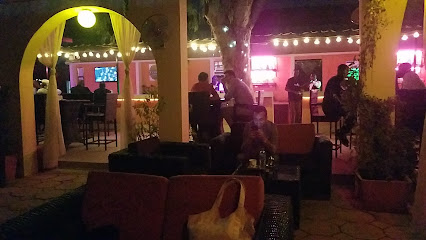
Desperado
Discover the vibrant nightlife at Desperado in Niamey, where locals and tourists come together for an unforgettable experience in a lively bar atmosphere.
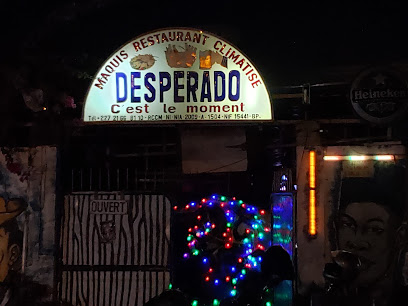
Zaxi Rooftop Lounge & Bar
Discover the breathtaking views and exquisite flavors at Zaxi Rooftop Lounge & Bar, Niamey's premier destination for nightlife and relaxation.
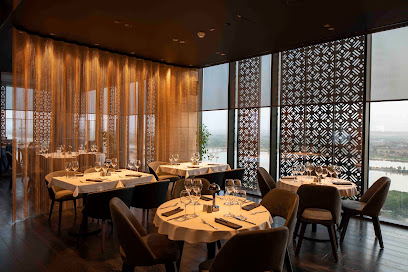
Calypso Bar
Experience the vibrant nightlife at Calypso Bar in Niamey, where refreshing drinks and lively atmosphere await your arrival.
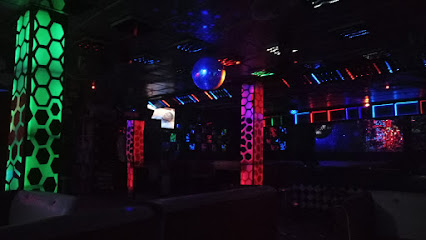
Club Mooky
Discover the lively nightlife of Niamey at Club Mooky, where great drinks and music create the perfect evening escape.
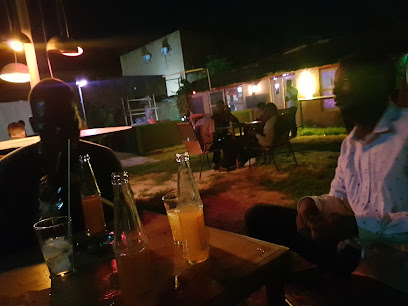
Eden’s Parc & Lounge
Experience the perfect blend of dining and entertainment at Eden’s Parc & Lounge, a must-visit spot in Niamey for tourists.
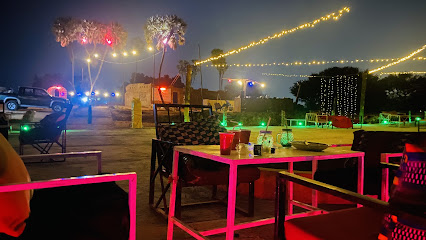
L'Escale - Select Bar
Discover L'Escale - Select Bar in Niamey for a vibrant nightlife experience with diverse drinks and a welcoming atmosphere.
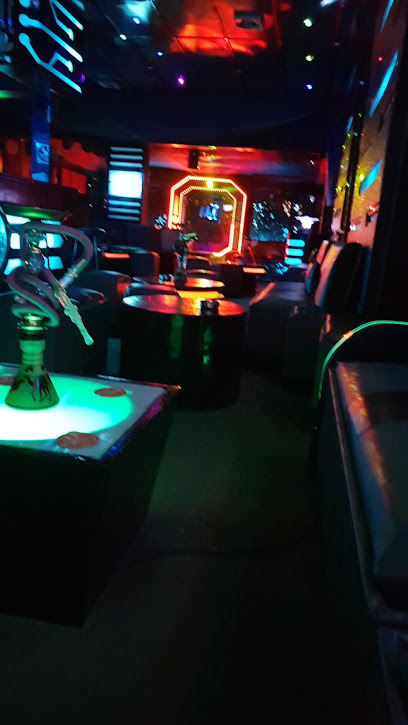
Concept
Discover the essence of Nigerien cuisine in Niamey at this inviting restaurant, where each dish tells a story of local heritage and flavor.
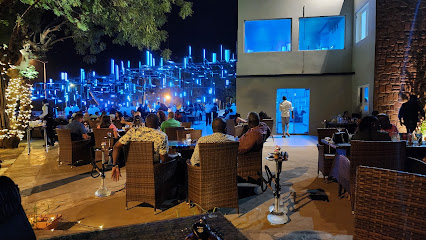
Bar Restaurant G8
Discover the vibrant nightlife at Bar Restaurant G8 in Niamey, featuring live music, delicious food, and a lively atmosphere perfect for tourists.
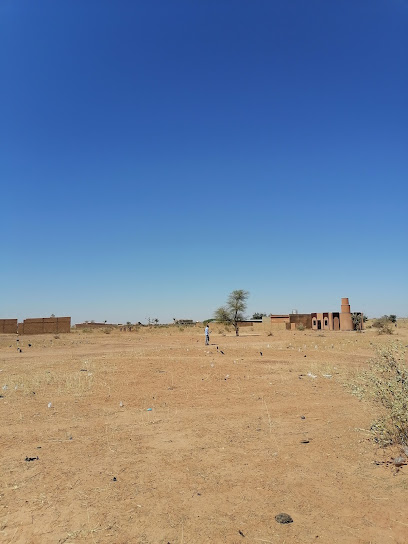
Local Phrases
-
- HelloSannu
[sah-noo] - GoodbyeSai an jima
[sigh ahn jee-mah] - YesEh
[eh] - NoA'a
[ah-ah] - Please/You're welcomeKar ka godia
[car kah goh-dee-ah] - Thank youNa gode
[nah goh-deh] - Excuse me/SorrySamu
[sah-moo] - How are you?Yaya ke?
[yah-yah keh] - Fine. And you?Lafiya. Kana lafiya?
[lah-fee-yah. kah-nah lah-fee-yah] - Do you speak English?Kana fada Turanci?
[kah-nah fah-dah too-rahn-chee] - I don't understandBa mi so
[bah mee soh]
- HelloSannu
-
- I'd like to see the menu, pleaseZan iya duba menu, don Allah
[zahn ee-yah doo-bah men-oo, dohn ah-lah] - I don't eat meatBa na ci nama
[bah nah chee nah-mah] - Cheers!Barka da shigowa
[bar-kah dah shee-goh-wah] - I would like to pay, pleaseZan bada kudi, don Allah
[zahn bah-dah koo-dee, dohn ah-lah]
- I'd like to see the menu, pleaseZan iya duba menu, don Allah
-
- Help!Yaa kuka!
[yah-koo-kah] - Go away!Kaji!
[kah-jee] - Call the Police!Kira jami'a!
[kee-rah jah-mee-ah] - Call a doctor!Kira babban dokin!
[kee-rah bah-bahn doh-keen] - I'm lostNa zata
[nah zah-tah] - I'm illNa yi lafiya
[nah yee lah-fee-yah]
- Help!Yaa kuka!
-
- I'd like to buy...Zan sami...
[zahn sah-mee] - I'm just lookingNa fasa hanya
[nah fah-sah hahn-yah] - How much is it?Shi ne ya fi?
[shee neh yah fee] - That's too expensiveWannan ya fi da kuma
[wahn-nahn yah fee dah koo-mah] - Can you lower the price?Zaka iya sake fama?
[zah-kah ee-yah sah-kay fah-mah]
- I'd like to buy...Zan sami...
-
- What time is it?Wane lokaci ne?
[wah-neh loh-kah-chee neh] - It's one o'clockYa fi ne bakwai
[yah fee neh bah-kwai] - Half past (10)Fuskarta da (10)
[foos-kar-tah dah] - MorningSafe
[sah-feh] - AfternoonRana
[rah-nah] - EveningYamma
[yahm-mah] - YesterdayJibi
[jee-bee] - TodayYau
[yah-oo] - TomorrowGobe
[goh-beh] - 1Daya
[dah-yah] - 2Bi
[bee] - 3Uku
[oo-koo] - 4Huɗu
[hoo-doo] - 5Biɗi
[bee-dee] - 6Shida
[shee-dah] - 7Bako
[bah-koh] - 8Takwas
[tah-kwahs] - 9Tara
[tah-rah] - 10Goma
[goh-mah]
- What time is it?Wane lokaci ne?
-
- Where's a/the...?Ina ne...
[ee-nah neh] - What's the address?Me ya yi alamatun?
[meh yah yee ah-lah-mah-toon] - Can you show me (on the map)?Zaka iya nuna min (a cikin hannu)?
[zah-kah ee-yah noo-nah meen (ah chee-keen hahn-noo)] - When's the next (bus)?Yaya lokaci ne (motar)?
[yah-yah loh-kah-chee neh (moh-tahr)] - A ticket (to ....)Kaɗan (zuwa ...)
[kah-dahn (zoo-wah)]
- Where's a/the...?Ina ne...
History of Niamey
-
The area now known as Niamey has been inhabited for centuries, with evidence of ancient settlements along the Niger River. The various ethnic groups, such as the Zarma, Songhai, and Fulani, played significant roles in the region's early development. These communities engaged in agriculture, fishing, and trade, establishing Niamey as a focal point of local commerce and culture long before colonial times.
-
Niamey's transformation into a modern city began under French colonial rule in the late 19th century. Initially a small village, it was chosen as the capital of the Niger colony in 1926, replacing Zinder. This decision was driven by its strategic location along the Niger River and its potential for growth. The French colonial administration laid the groundwork for the city's infrastructure, including administrative buildings, roads, and bridges.
-
Niger gained independence from France on August 3, 1960, and Niamey was confirmed as the capital of the new nation. The post-independence era saw significant urban development, with the construction of government buildings, educational institutions, and healthcare facilities. Niamey became the political, economic, and cultural heart of Niger, attracting people from various parts of the country seeking opportunities.
-
Niamey is home to several important cultural and educational institutions, such as the National Museum of Niger, which showcases the nation's rich history and diverse cultures. The Abdou Moumouni University, established in 1974, is a major center for higher education in the region. These institutions play a crucial role in preserving the cultural heritage and fostering intellectual growth in Niger.
-
In recent decades, Niamey has experienced rapid economic growth and modernization. The city's economy is driven by sectors such as trade, agriculture, and services. The construction of new infrastructure, including roads, bridges, and modern buildings, has transformed Niamey's skyline. Despite challenges such as urbanization and population growth, Niamey continues to evolve as a dynamic and vibrant city.
-
Niamey is a hub of cultural activities, hosting various festivals and events that celebrate the nation's heritage. The Cure Salée festival, also known as the 'Festival of the Nomads,' is a significant event that brings together Tuareg and Fulani nomads from across the Sahel region. Traditional music, dance, and crafts are integral parts of Niamey's cultural landscape, reflecting the diversity and richness of Nigerien traditions.
-
As the capital city, Niamey is the center of Niger's political landscape. It hosts the presidential palace, the National Assembly, and various government ministries. The city's political environment has seen periods of stability and turmoil, reflecting the broader dynamics of Nigerien politics. Niamey's role as the seat of government makes it a pivotal location for understanding the nation's political history and current affairs.
Niamey Essentials
-
Niamey is accessible via Diori Hamani International Airport (NIM), located approximately 12 kilometers southeast of the city center. Major airlines, including Air France, Turkish Airlines, and Royal Air Maroc, offer regular flights to Niamey. Overland travel is possible from neighboring countries, but it is important to check the security situation and visa requirements beforehand. Taxis and hotel shuttles are available for airport transfers.
-
In Niamey, taxis are the most common mode of transportation and can be hailed on the street or booked in advance. Public buses operate within the city, although they can be crowded and less reliable. Car rentals are available but driving can be challenging due to traffic and road conditions. For short distances, motorcycle taxis (zemidjans) are an affordable and quick option.
-
The official currency in Niger is the West African CFA franc (XOF). Credit cards are accepted in some hotels, restaurants, and larger shops, but it is advisable to carry cash for smaller transactions and in less touristy areas. ATMs are available in Niamey, but it is recommended to withdraw sufficient cash in urban centers before traveling to remote areas.
-
Niamey is generally safe for tourists, but it is essential to take standard precautions. Avoid walking alone at night and be cautious in crowded places to prevent pickpocketing. Areas to be cautious in include the Goudel and Saga neighborhoods, which have higher crime rates targeting tourists. Always stay informed about the current security situation and follow local advice.
-
In case of emergency, dial 17 for police assistance, 18 for fire services, and 15 for medical emergencies. Major hospitals in Niamey include the National Hospital of Niamey and Clinique Gamkalley. It is advisable to have comprehensive travel insurance that covers medical emergencies. For minor health issues, pharmacies are available throughout the city.
-
Fashion: Do dress modestly, covering shoulders and knees, especially when visiting religious sites. Don't wear revealing clothing. Religion: Do respect local customs and traditions. Always remove shoes when entering a mosque. Public Transport: Do be respectful and offer your seat to elderly passengers. Don't eat or drink on public transport. Greetings: Do greet people with a handshake. A slight bow of the head is also a sign of respect. Eating & Drinking: Do try local dishes and accept food offerings graciously. Don't refuse hospitality, as it is considered impolite.
-
To experience Niamey like a local, visit the Grand Marché for fresh produce, crafts, and traditional goods. Engage with locals, who are often friendly and willing to share stories about their culture. Don't miss the National Museum of Niger, which offers insights into the country's history and culture. For a unique experience, take a stroll along the Niger River and enjoy the local cuisine at riverside restaurants.
Trending Landmark in Niamey
-
Grand Market Niamey
-
Diori Hamani International Airport (NIM)
-
Bravia Hotel Niamey
-
Great Mosque of Niamey
-
Grand Hôtel du Niger
-
CanalOlympia Hippodrome
-
Mosquée Cité Caisse
-
LEVEL CLUB & LOUNGE
-
Our Lady of Perpertual Help Cathedral
-
Natalia Niamey
-
FERME YOUYOU
-
visiter le niger
-
Niamey niger
-
Niamey - niger
-
Niamey railway station
Nearby Cities to Niamey
-
Things To Do in Ziniaré
-
Things To Do in Ouagadougou
-
Things To Do in Ouahigouya
-
Things To Do in Koudougou
-
Things To Do in Tamale
-
Things To Do in Dédougou
-
Things To Do in Wa
-
Things To Do in Kaduna
-
Things To Do in Atakpamé
-
Things To Do in Ibadan
-
Things To Do in Abeokuta
-
Things To Do in Kano
-
Things To Do in Notse
-
Things To Do in Bobo-Dioulasso
-
Things To Do in Kpalimé

















